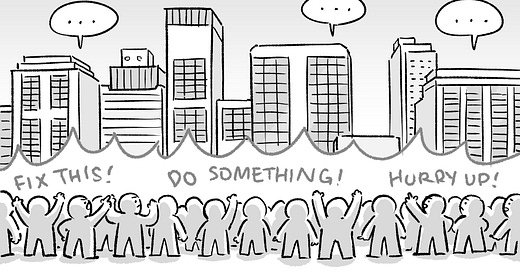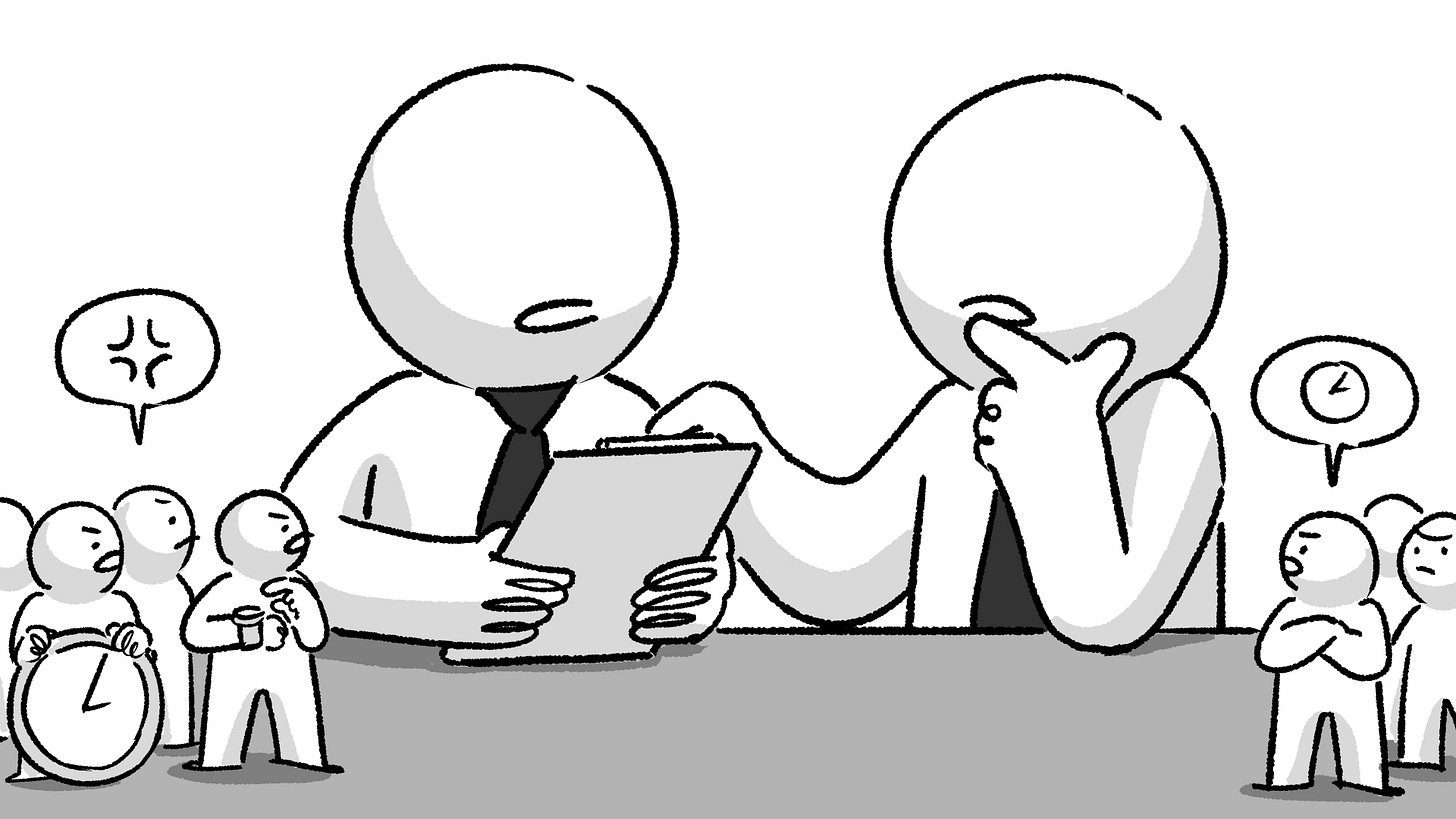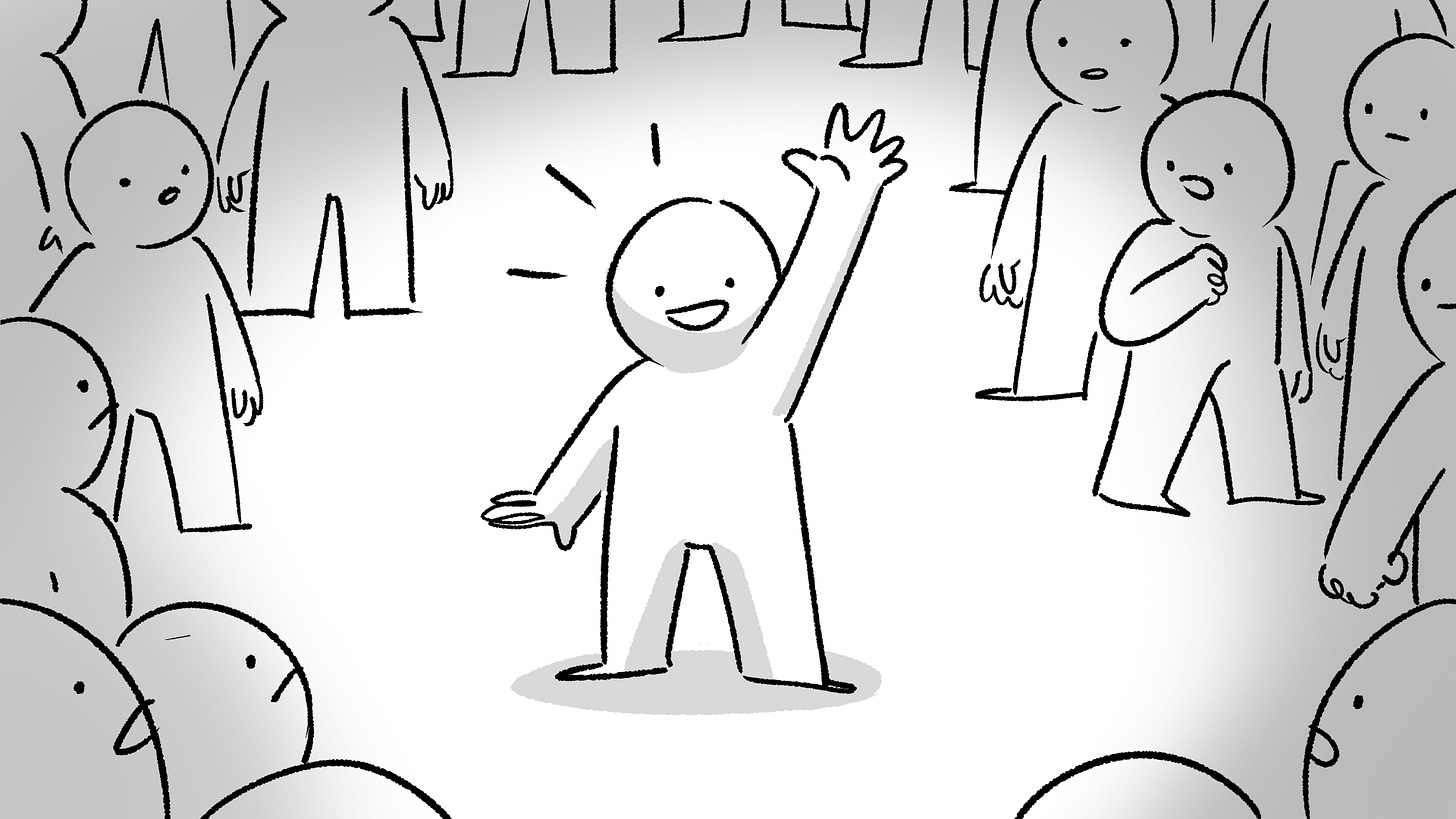The problem with leaving everything up to ‘systemic change’
Systemic change is part of the solution, but so are we.
Disclaimer: This article acknowledges the complexities of enacting change, recognising that while individual actions are vital, they operate within broader systemic challenges. Readers are encouraged to reflect on the content and consider how both individual efforts and systemic changes are essential for real progress.
One criticism often levelled at this page is that it tends to place too much emphasis on what the individual can do, instead of putting the responsibility on larger organisations such as companies and governments.
We think that’s a misunderstanding that we want to address in this article.
There is little doubt systemic change is important
If there’s anything my education in sociology has taught me, it is that systems possess far more power than the individual. If you decided to reduce the use of air conditioning, it wouldn’t make much of an impact. However, if a global property developer decided to turn off air conditioning, that would be a different story. Duh.
So yes, that perspective is true. Organisations and governments have the ability to address the root causes for long term impact.
However, we also think it’s important that the reader understands the importance of their own individual action and agency. Here’s why.
Systemic change is slow; we cannot afford to wait
Systemic change occurs when a critical mass of people agree on something. Yes?
But we live in an era where society advocates the importance of respecting everyone’s interests. And since every opinion is valid, decision-makers often have to balance the needs of different people.
I love that we try to accommodate diversity, but we also have to acknowledge that it can cause deadlock, stalemates and unhappy compromises.
For example: I want more bicycle lanes in Singapore so people can commute to work more safely.
However, it would be foolish of me to just assume the government solely revolves around my whims and fancies. Governments need to think about serving the needs of people, and ‘people’ doesn’t just include me.
‘People’ also includes:
People who think Singapore is too hot for cycling
Car owners who think cycling paths will take up too much space on the road
People who simply don’t care because they are happy with public transportation
People who will be concerned about whether or not these lanes will be used for money, because it will be paid for using taxes.
I hate to admit it, but there are simply not enough people in Singapore who care enough about my cause.
Yes, governments can build bicycle lanes and ‘do the right thing’, but it does require a lot of bravery to do the unpopular things. This is called political will, and in the age of democracy, piss people off long enough and you will go out of power.
So what can I do?
As a living, breathing human being with limited time on earth, I cannot wait for the government to muster up the courage to do what I want. Neither can I wait for the rest of society to become enlightened to the wonders of cycling to work.
But as an individual, I can cycle as safely as I can in the meantime.
Systemic change starts from individual action
A classic example of this is Rosa Parks; a black woman who refused to give up her seat to a white man to protest racial segregation in 1955. Her courageous stand not only challenged the discriminatory practices of the time but also inspired countless others.
While Parks did not single-handedly carry the Civil Rights Movement, it is undeniable she made an impact. Her individual action inspired others into collective action.
More often than not, we all have varying abilities to enact change.
If you’re a CEO, you can choose to prioritise employee wellbeing and sustainability over maximising profits. This is instead of squeezing and overworking for maximum profits. If you can prove this is better for everyone long term, other companies might take your lead.
If you’re a hiring manager, you can choose not to filter applicants based on whether or not they have a degree, and hire based on merit. If you do this well, you can change the hiring culture first in your company, then your industry.
If you’re a talented professional, you can pick a company that aligns with your values instead of choosing the employer with the highest salary. If enough think like you, companies will be forced to reconsider their values.
In my bicycle example, I can demonstrate that cycling to work is a wonderful way to save money, keep fit and reduce my impact on the environment. If I do this successfully, more people will cycle and we can start to have a larger voice in society.
If I don’t, well, things will remain the status quo. Or worse, deteriorate.
But if enough individuals get together, we can change organisations, societies and governments together via collective action; literally being the change we want to see*.
It’s not always easy to see, but structure and agency are two sides of the same coin.
What we advocate is not individual responsibility — it’s shared responsibility that starts with the individual.
*Of course, it's important to recognise that the effectiveness of these individual actions can differ greatly based on the diverse social identities and experiences of people. This also shows why we need inclusive strategies that consider the overlapping factors of identity, like race, gender, and socioeconomic status, in our shared efforts.
The effect of narratives and change
“Oh! But I am just one person and it feels hopeless.”
— Many a passionate activist
Last but not least, it’s easy to feel small and powerless if you just believe in structural change and ignore your own agency.
Studies have consistently shown that having a high locus of control is consistently good for your mental health. Conversely, this means if you always believe that the situation is out of your control, it’s easy to feel disenchanted, disempowered or hopeless. In fact, we’d argue for some of the world’s most serious issues — think climate change — people react with apathy.
Since things are beyond my control, why bother?
But here’s something even the most fervent of activists can agree with: We need people who believe they can change the world. And we need them to feel empowered and hopeful.
For that reason, the stories we tell ourselves cannot just be about what others need to do, they must also be about what we can do.
To bring about the change we want, we must build narratives of optimism and hope.
And that’s where the reader come in:
Often, the biggest bringers of structural change are often people who believe in their own agency.
Yes, the world is full of problems, so carve out a problem you’d like to focus on. Pressure your governments. Ask businesses to do better. Advocate for more rights and action.
Just remember, it does in a very real way, start with you.
Stay woke, salaryman.
If you’ve read this far, please consider subscribing to our email newsletter (yes, this Substack). We cannot offer you much but we can offer this:
We have newsletter-exclusive articles that won’t be posted anywhere else. We created these articles for people who want to go deeper into complex issues than the shorter-form content we typically have.
If you don’t have social media or don’t follow our Telegram channel, you can still get updates to all our content emailed directly to your inbox to read at your own time.
We promise not to spam your inbox (but Substack might, so update your notification settings).









I really enjoyed this piece! Thanks for this :)
Agreed on all levels, but I do wonder: Since it's more or less equally important that we concern ourselves with our individual responsibilities as well as systemic change, which of the two is better advocated by a voice with relatively large public reach?
Personal responsibility is important, but should it really command equal space in public discourse? Should not public discourse by public figures (such as a widely-read newsletter) prioritise the inspiration of collective action and systemic change, mostly leaving concern for personal responsibility to the realm of more private, personal interactions?
Obviously these distinctions shouldn’t be black-and-white. We can and should all walk and chew gum at the same time. (At least figuratively, haha.)
But I do feel like the moral calculus changes when the cyclist acquires a megaphone.